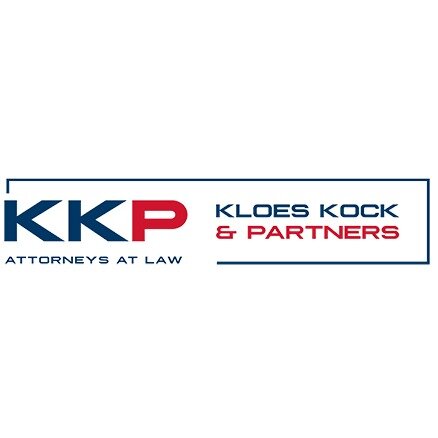Best Corporate & Commercial Lawyers in Aruba
Share your needs with us, get contacted by law firms.
Free. Takes 2 min.
Or refine your search by selecting a city:
List of the best lawyers in Aruba
About Corporate & Commercial Law in Aruba
Corporate and commercial law in Aruba covers a wide range of legal matters related to businesses and commercial transactions. This area of law deals with the creation, organization, management, and dissolution of companies as well as contracts, mergers and acquisitions, compliance issues, and various commercial disputes. Aruba, as a constituent country within the Kingdom of the Netherlands, has its own legal system with civil law as its foundation. The business environment in Aruba is both dynamic and open to international commerce, making it an attractive location for foreign investment and business operations.
Why You May Need a Lawyer
Individuals and businesses may need a corporate and commercial lawyer in Aruba for many reasons. Some of the most common situations include:
- Establishing a new business entity or enterprise
- Drafting and reviewing commercial contracts or agreements
- Handling mergers, acquisitions, or restructuring
- Navigating compliance with Aruban business regulations
- Resolving shareholder disputes or disagreements between partners
- Managing employment law issues related to corporate operations
- Registering intellectual property and protecting trade secrets
- Advising on tax implications for local and international businesses
- Representing clients in court for commercial litigation or arbitration
- Handling the dissolution or liquidation of a company
Local Laws Overview
Corporate and commercial law in Aruba is largely derived from Dutch civil law with adaptations to meet local needs. The most important legislation includes the Aruba Civil Code (Burgerlijk Wetboek), the Commercial Code (Wetboek van Koophandel), and specific laws concerning the registration and operation of business entities. Companies in Aruba can operate as limited liability companies (Naamloze Vennootschap or NV and Vennootschap met Beperkte Aansprakelijkheid or VBA), partnerships, sole proprietorships, and branch offices of foreign companies. Ongoing compliance with tax, labor, and business license requirements is mandatory. There are specific regulations on foreign investments, data protection, anti-money laundering, and economic substance that companies must also follow. Understanding these laws is vital to avoid penalties and ensure the lawful and effective operation of any business in Aruba.
Frequently Asked Questions
What types of business entities can I establish in Aruba?
In Aruba, common business entities include the limited liability company (NV and VBA), partnership, sole proprietorship, foundation (Stichting), and branches of foreign companies. Each has specific formation and operational requirements.
What are the main steps to register a company in Aruba?
The typical process includes choosing a business structure, registering with the Aruba Chamber of Commerce, obtaining necessary business licenses, registering with the tax authorities, and fulfilling other sector-specific requirements.
Are there restrictions on foreign ownership of businesses?
Aruba is generally open to foreign investment. Foreigners can fully own businesses except in certain regulated sectors where specific local participation may be required. It is important to check for sector-specific rules.
What are the ongoing compliance requirements for companies?
Companies must keep accurate records, file annual financial statements, comply with tax and social security filings, maintain appropriate business licenses, and adhere to anti-money laundering and economic substance requirements.
How are commercial contracts enforced in Aruba?
Commercial contracts are generally enforceable if they are legally valid and executed by authorized parties. Disputes may be resolved through local courts or international arbitration, depending on contract terms.
What labor laws apply to businesses in Aruba?
Aruban labor law provides detailed rules regarding employment contracts, minimum wage, working hours, health and safety, social security contributions, and termination procedures. Employers must comply with both statutory and collective labor agreements, if any.
Are there any incentives for foreign investors?
Aruba offers various incentives such as tax benefits and special economic zones for qualifying foreign investors. Specific programs depend on the type of business and the amount of investment.
How does Aruba regulate anti-money laundering and data protection?
Aruban businesses are subject to strict anti-money laundering regulations, including customer due diligence and reporting suspicious transactions. Data protection and privacy laws must also be observed, especially when handling customer or employee data.
What are the main taxes businesses face in Aruba?
Corporate income tax, turnover tax, wage tax, and social security contributions are the primary taxes. Tax rates and obligations vary by size and type of business, so professional tax advice is often necessary.
How do I resolve a shareholder or partnership dispute?
Most disputes are first addressed by reviewing the company's by-laws or shareholder agreements. If no resolution is possible, parties can seek mediation, arbitration, or litigation through the Aruban courts.
Additional Resources
For more information or assistance with corporate and commercial matters in Aruba, you can consult:
- Aruba Chamber of Commerce and Industry (Kamer van Koophandel en Nijverheid Aruba) - For company registration and business licensing
- Department of Economic Affairs, Commerce and Industry - For guidance on starting and operating a business
- Aruba Tax Department - For information on local taxes and filing obligations
- Aruba Notarial Association - For assistance with official documents and company formation
- Local bar associations or law firms specializing in business law
Next Steps
If you need legal assistance with corporate or commercial matters in Aruba, start by identifying the specific issue or decision you are facing. Gather all relevant documents such as contracts, business registration paperwork, correspondence, and financial statements. Next, contact a reputable local law firm or attorney with experience in Aruban corporate and commercial law. They can provide tailored legal advice, assist with compliance, draft or review contracts, and represent you in negotiations or disputes. Timely legal guidance can help prevent mistakes and ensure your business activities in Aruba are on a solid legal foundation.
Lawzana helps you find the best lawyers and law firms in Aruba through a curated and pre-screened list of qualified legal professionals. Our platform offers rankings and detailed profiles of attorneys and law firms, allowing you to compare based on practice areas, including Corporate & Commercial, experience, and client feedback.
Each profile includes a description of the firm's areas of practice, client reviews, team members and partners, year of establishment, spoken languages, office locations, contact information, social media presence, and any published articles or resources. Most firms on our platform speak English and are experienced in both local and international legal matters.
Get a quote from top-rated law firms in Aruba — quickly, securely, and without unnecessary hassle.
Disclaimer:
The information provided on this page is for general informational purposes only and does not constitute legal advice. While we strive to ensure the accuracy and relevance of the content, legal information may change over time, and interpretations of the law can vary. You should always consult with a qualified legal professional for advice specific to your situation.
We disclaim all liability for actions taken or not taken based on the content of this page. If you believe any information is incorrect or outdated, please contact us, and we will review and update it where appropriate.
Browse corporate & commercial law firms by service in Aruba
Aruba Attorneys in related practice areas.
Browse corporate & commercial law firms by city in Aruba
Refine your search by selecting a city.











